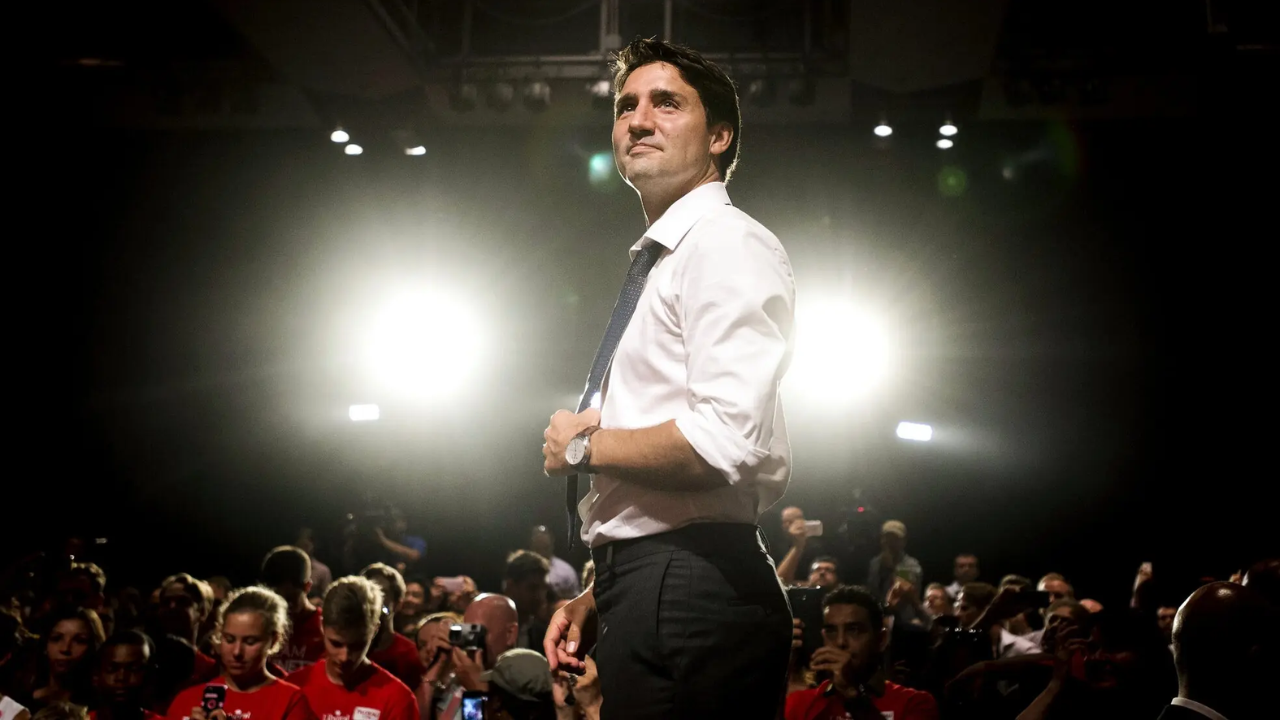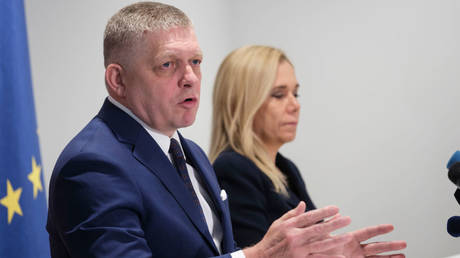ARTICLE AD BOX
Israel bombed Gaza on Tuesday after its Prime Minister Benjamin Netanyahu vowed there won't be peace until its Hamas rulers are destroyed and Palestinian society is "deradicalised".
The army said it had struck more than 100 targets in 24 hours, including military sites and tunnel shafts in central Jabalia and Khan Yunis in the south, as heavy ground combat continued.
The withering military campaign launched after the Hamas attacks of October 7 has caused mass civilian casualties and widespread hunger and reduced much of the coastal territory to rubble.
The UN World Health Organization reported "harrowing" accounts of entire families killed during Christmas Eve strikes on the Al-Maghazi refugee camp in the central area of the Gaza Strip.
Global concern has mounted and international calls for a ceasefire have multiplied but Netanyahu vowed to stay the course in an op-ed published in the Wall Street Journal late Monday.
"Hamas must be destroyed, Gaza must be demilitarised and Palestinian society must be deradicalised," he argued. "These are the three prerequisites for peace between Israel and its Palestinian neighbours in Gaza."
Once the fighting ends, he said, "for the foreseeable future Israel will have to retain overriding security responsibility over Gaza" and build a "temporary security zone on the perimeter" of the territory.
Netanyahu had earlier visited Israeli troops inside Gaza, then reportedly told a meeting of his conservative Likud party that "we're not stopping... We're intensifying the fighting in the coming days".
The bloodiest ever Gaza war erupted when Hamas attacked southern Israel on October 7 and killed about 1,140 people, mostly civilians, according to an AFP tally based on Israeli figures.
They took 250 hostages of whom 129 remain inside Gaza.
Israel launched extensive aerial bombardment and a siege followed by a ground invasion. The campaign has killed 20,674 people, mostly women and children, according to Hamas-run Gaza's health ministry.
'Great destruction'
The Israeli army published footage showing its troops moving through the muddy war zone of shattered buildings as gunfire rings out, tanks churning up dust and a soldier firing a heavy machine gun from a window.
The army says 158 Israeli soldiers have been killed inside Gaza.
AFPTV images from Gaza City's devastated and largely deserted Tal al-Hawa area showed dirt roads winding through mountains of rubble amid multi-storey buildings pancaked by strikes or standing askew.
"By God, the destruction is very great, and all the owners of the place have been displaced to the south," says one Palestinian man. "May God help people through the misfortunes they are in."
Video footage from inside the city's Al-Quds Hospital showed an empty ward with a hole blasted into a wall, broken window glass strewn across the floor, and medical equipment covered in a layer of dust.
Some residents of the Al-Maghazi refugee camp returned to the ruins of their homes after strikes that Gaza's health ministry said killed at least 70 people. AFP was unable to independently verify that toll.
One of those coming back, Zeyad Awad, said there had been no evacuation warning before the strikes.
"What should we do?" he asked. "We are civilians, living peacefully and wanting only safety and security."
WHO staff visited a hospital treating victims of the strikes and "heard harrowing accounts" from health workers and victims, said the agency's chief Tedros Adhanom Ghebreyesus.
Sean Casey, a WHO emergency medical teams coordinator, described the fate of a nine-year-old being treated who was expected to die.
"He was crossing the street in front of the shelter where his family is staying and the building beside him blew up," he said.
The Israeli army said it was "reviewing the incident" and added that it was "committed to international law including taking feasible steps to minimise harm to civilians".
'Real hunger'
Vast areas of Gaza lie in ruins and its 2.4 million people are enduring dire shortages of water, food, fuel, and medicine, alleviated only by the limited arrival of aid trucks.
"Now there is real hunger," said Nour Ismail, who was waiting for food to be distributed in the southern city of Rafah.
"My children are dying of hunger."
An estimated 1.9 million Gazans have been displaced, according to the UN, many fleeing south and crowded into shelters or makeshift tents in the winter cold, even as the fighting comes ever closer.
Netanyahu told Likud party members on Monday that he was ready to support the voluntary migration of civilians out of the Gaza Strip, the Israeli newspaper Haaretz reported.
He reportedly told party members "Our problem is not whether to allow an exit, but that there will be countries that are willing to absorb an exit".
Hamas rejected as "absurd" any such discussion. Palestinians "refuse to be deported and displaced", it said in a statement. "There can't be exile and there is no other choice than to remain on our land."
The Gaza war has heightened regional tensions between, on the one hand, Israel and its ally the United States, and, on the other, Iran-backed armed groups in Lebanon, Syria, Iraq, and Yemen.
Iran's Islamic Revolutionary Guard Corps said an Israeli air strike in Syria had killed the senior Quds Force commander Razi Moussavi, and President Ebrahim Raisi vowed Israel "will certainly pay for this crime".
In Iraq the US military launched strikes on pro-Iran groups whom it has blamed for more than 100 attacks in recent weeks, said US Defense Secretary Lloyd Austin.
The Iraqi government denounced the air strikes, which it said had killed one member of the security forces and wounded at least 18 others, as a "hostile act".
(Except for the headline, this story has not been edited by NDTV staff and is published from a syndicated feed.)
.png)
 1 year ago
5
1 year ago
5








 English (US)
English (US)